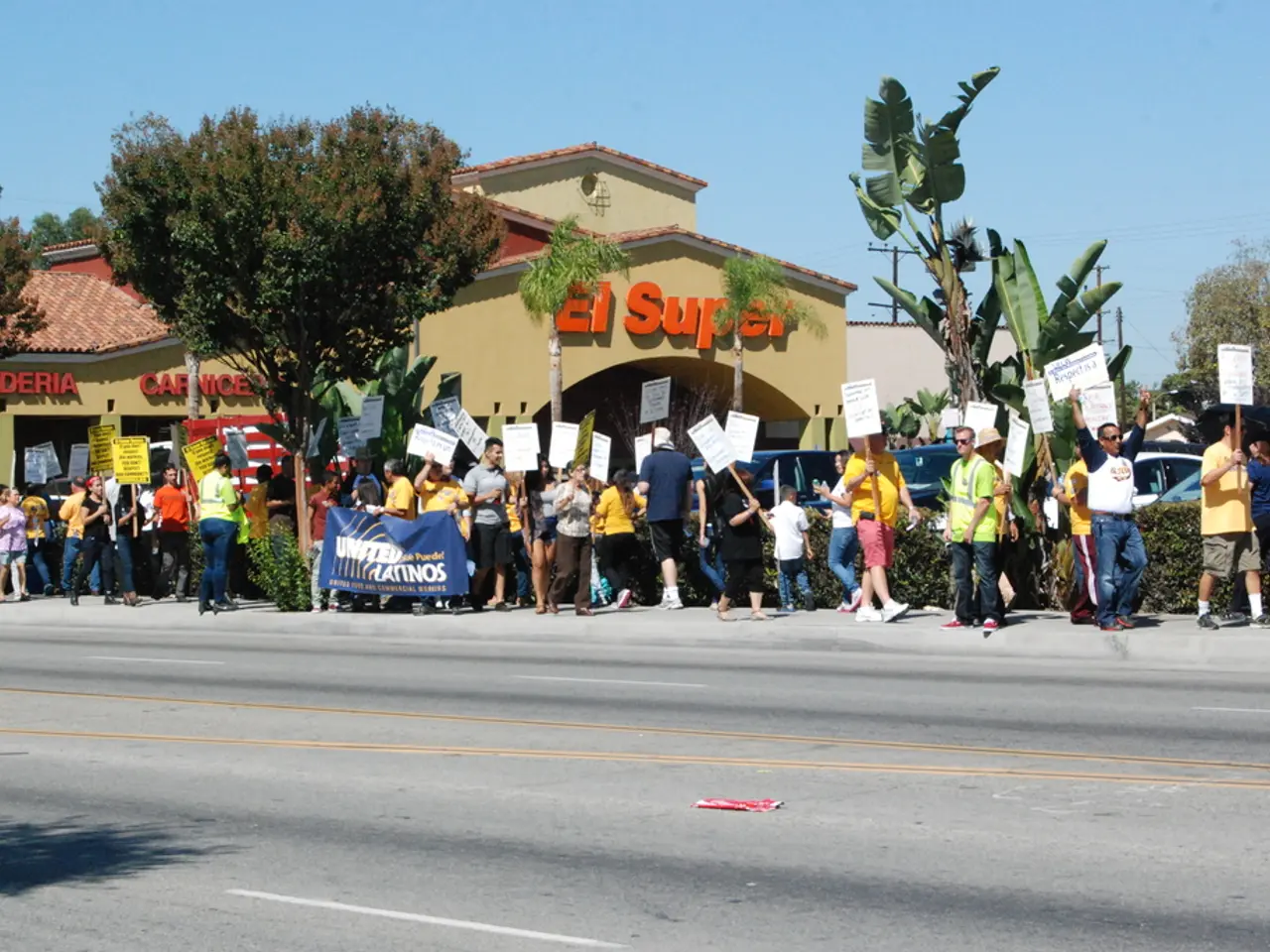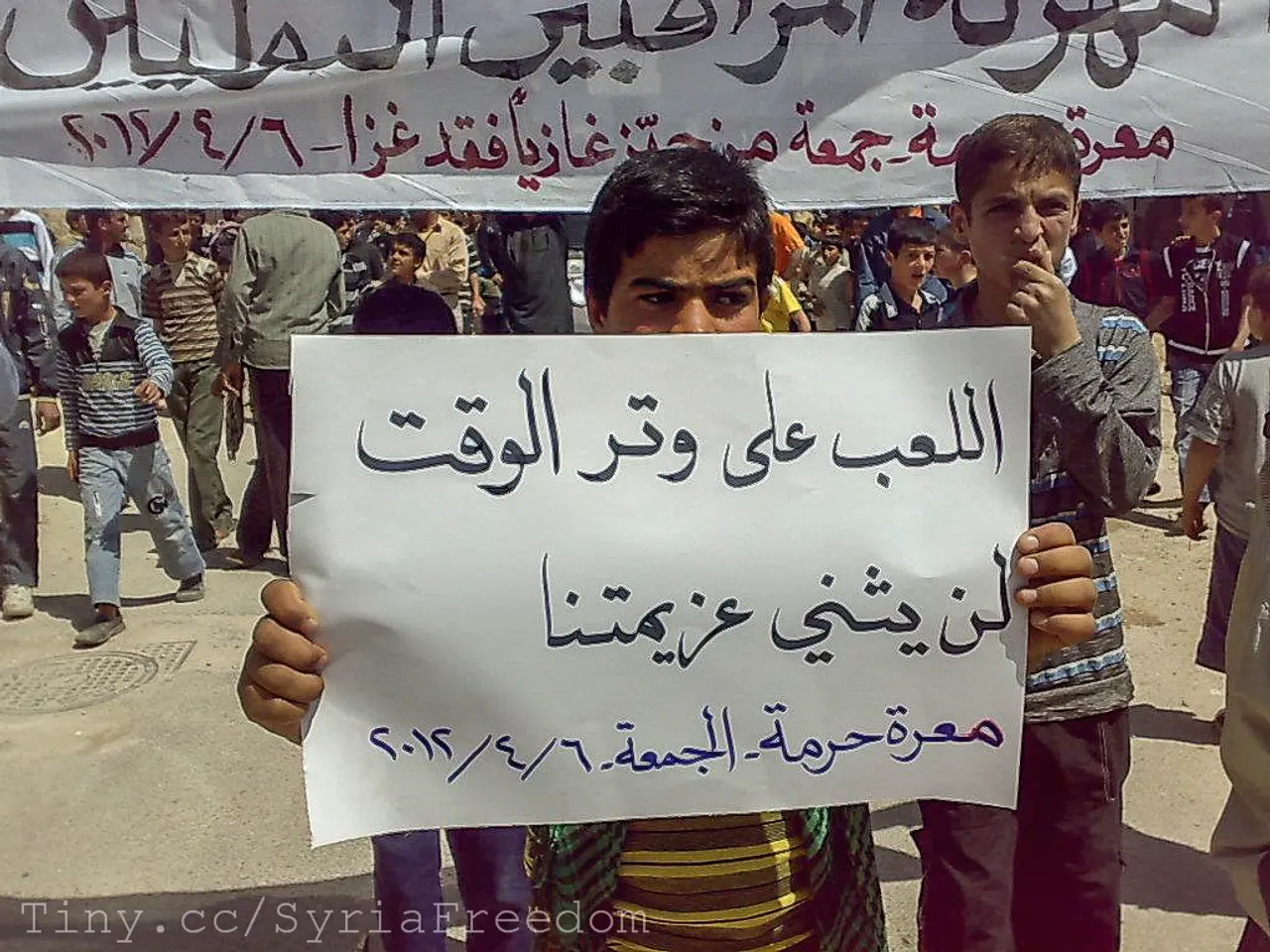Confirmed Prison Term and Political Ineligibility of Bosnian Serb Leader, Affirmed in Appeal
In a historic ruling, Milorad Dodik, the President of Republika Srpska, has been convicted and sentenced to one year in prison, with a six-year political ban, by the Court of Bosnia and Herzegovina. This sentence was upheld by the Appeals Panel, making it final and unchallengeable [1][2][4].
The case revolves around Dodik's refusal to implement rulings by the Office of the High Representative (OHR), which oversees compliance with the 1995 Dayton Peace Agreement that ended the Bosnian War. Dodik and the Republika Srpska entity had passed laws prohibiting state judicial and security institutions’ operations within Republika Srpska, actions seen as undermining state-level authority established by the Dayton Agreement. The High Representative has broad powers under the agreement to enforce peace implementation, including imposing laws and removing officials obstructing peace [1][2].
This ruling signifies the enforcement of the Dayton framework, affirming the authority of Bosnia's central institutions and the High Representative to uphold the peace agreement's provisions. The European Union, to which Bosnia is a candidate, has called for respect of the verdict, emphasizing the independence and impartiality of the court [2][3].
Dodik, however, has rejected the verdict as politically motivated, accusing Sarajevo-based parties and foreign sponsors of aiming to suppress Republika Srpska’s political will [1][2].
It is important to note that the political life and laws of Bosnia have been supervised by an international High Representative since the end of the 1992-1995 war. The penal code was modified by the current High Representative, Christian Schmidt, to include a prison sentence and the prohibition of engaging in politics in case of violation of his decisions by elected officials. However, this article does not contain any new information about the penal code modification or the prohibition of engaging in politics in case of violation of the High Representative's decisions by elected officials [5].
Dodik surrendered to justice at the beginning of July, following an arrest warrant that he had knowingly ignored for months. Upon surrendering, he agreed to be questioned in the case and benefited from conditional release [6].
Sources:
- BBC News
- Al Jazeera
- EU Observer
- Reuters
- The Guardian
- Associated Press
- The verdict against Milorad Dodik, sentencing him to prison and imposing a political ban, is a significant step in the enforcement of policy-and-legislation regarding war-and-conflicts, specifically the Dayton Peace Agreement, given that it highlights the authority of Bosnia's central institutions and the High Representative.
- General-news outlets worldwide have reported on the dismissal of Dodik's claims that the ruling was politically motivated, with the European Union stressing the importance of respecting the independence and impartiality of the court.
- Crime-and-justice developments in Bosnia have prevailed once again in the political arena, as Dodik's violations of the Dayton Agreement have led to penalties under the modified penal code, with Dodik surrendering to justice and agreeing to be questioned in the case.






